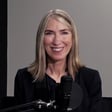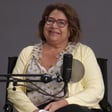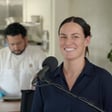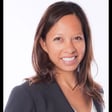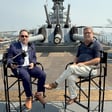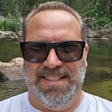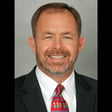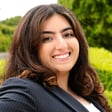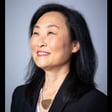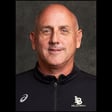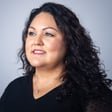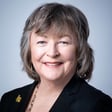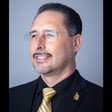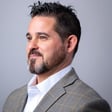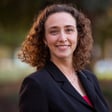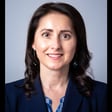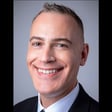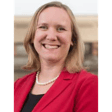Become a Creator today!Start creating today - Share your story with the world!
Start for free
00:00:00
00:00:01

Language, Culture, and Opportunity: A Conversation with Clorinda Donato
Today I’m joined by Clorinda Donato, Director of the Center for Global Romance Languages and Translation Studies at CSULB. Founded in 2017 through a gift from Mario Giannini, the Center prepares students for careers where language and translation bridge cultures and create opportunity.
Transcript
Introduction to 'At the Beach' Podcast
00:00:16
Speaker
Hello and welcome to At the Beach, the podcast that highlights the people, programs, and partnerships shaping the future of Cal State Long Beach. I'm your host, Dan Montoya, Vice President and of University Relations and Development.
Guest Introduction: Dr. Clorinda Donato
00:00:32
Speaker
Today, i am so honored to welcome and an extra extraordinary scholar and leader whose name is synonymous with language, culture, and global engagement here at the beach, Dr. Clorinda Donato.
00:00:48
Speaker
Dr. Clorinda Donato is a professor of French and Italian at CSULB. She also serves as the director of the Clorinda Donato Center for Global Romance Languages and Translation Studies, which she helped establish in 2017.
00:01:07
Speaker
Her research spans three major fields, 18th century studies, translation studies, and the Intercomprehension of Romance Languages.
00:01:18
Speaker
She published over 100 scholarly articles and book chapters authored and co-authored landmark volumes, including The Life and Legend of Caterina Vizzani and the book Juntos, Italian for Speakers of English and Spanish.
00:01:40
Speaker
and has led major national projects funded by the National Endowment for Humanities. She is widely recognized for advancing multilingual education, bridging cultures through translation, and inspiring generations of students here at the beach.
00:01:59
Speaker
Dr. Donato, welcome to the show. Well, thank you, Dan. It's really a pleasure to be here and to have this opportunity to talk to you. Great. So we're going to have a conversation. We go through a series of questions. And but I am excited to get your thoughts on many different topics.
00:02:17
Speaker
So let's start at the beginning.
Dr. Donato's Passion for Languages
00:02:19
Speaker
What first inspired your like your love for languages and eventually led you to 18th century studies in translation? Well, my PhD is from UCLA and it's in Romance Languages, Literatures and Linguistics, which means so I had to do three ah specializations and um also pass a reading exam in German.
00:02:44
Speaker
um But I became very interested in languages um really through my father, who was a fluent speaker of Italian. He was an Italian immigrant, but also his ah dialect of Italian, which was the Calabrian dialect. Uh-huh.
00:03:02
Speaker
And English. And my father actually worked as an interpreter. Totally. So, yes, he was recruited for the Office of Strategic Services during World War II. He went over to Canada.
00:03:19
Speaker
um North Africa. um It's there the the what you see pictured in the movie Casablanca. It's right after that, you know, Casablanca, when the the French and the English succeeded in moving the Nazis out of North Africa.
00:03:35
Speaker
And after that, they brought over a lot of they recruited Italian-American people. Italian-American men who were capable of ah speaking not only standard Italian, but also the dialects so they could pass as locals when they ah landed ah in in Sicily to ah assist the partisans in liberating Italy from the Nazis.
00:04:02
Speaker
So that um has been a um fascinating ah legacy from my father. My father was also self-taught in French um and in Spanish. We grew up in the town of San Fernando in the San Fernando Valley. Right. This is a town that is largely bilingual, and i was always exposed um to languages. So ah that's kind of where. And then when I went to UC Santa Barbara, there was a two year language requirement at the time.
00:04:31
Speaker
Can you imagine every single person on the campus had to study a language? And um I picked Italian. I said, I'll make my father happy.
00:04:42
Speaker
I'll study Italian, even though I had studied Latin in high school. wow And I fell in love with it. I fell actually fell in love with the whole um experience of studying languages and the opportunities that that afforded me to travel.
00:04:55
Speaker
That's amazing. um You published across such diverse fields, enlightenment studies, translation, pedagogy. Which threads connect to your research?
Connecting Research Fields: Knowledge Transfer
00:05:08
Speaker
Well, They all connect. They all come together. In terms of 18th century studies, i um became very interested in the transfer of knowledge and in the moment when, very similar to the moment we live in today, where the amount of knowledge...
00:05:29
Speaker
was so great that people could no longer contain it within their own heads, right? So people used to keep things called commonplace books, where these were kind of the first encyclopedias where they would write down the things they wanted to remember.
00:05:47
Speaker
But all of a sudden they realized that they needed reference works for... um having access to the knowledge that was burgeoning. you know From the time of the scientific revolution with Galileo, this just grows exponentially. and By the 18th century, you have innovation on every level.
00:06:09
Speaker
um and This is really the birth of modern encyclopedism. and This to me was fascinating because I i really ah loved that idea of how people accessed knowledge.
00:06:26
Speaker
translation was one of the most fundamental ways in which this encyclopedism was transferred throughout the world. So these encyclopedias were translated into multiple languages.
00:06:41
Speaker
And ah my book there, which I've brought, and I have a copy for you, which you can see is... translation and transfer of knowledge in encyclopedic compilations 1680 to 1830. Yeah.
00:06:58
Speaker
Right. And this book is really, and you can see the covers, you see the Encyclopédie Methodique. on the cover here, you see various translated encyclopedias, the Encyclopédia Methodica. This is the ah Spanish translation of this ah French encyclopedia.
00:07:16
Speaker
There were Italian translations. There were French translations. And of this particular encyclopedia, there was a Japanese translation. All of this negotiated through the Jesuits who traveled, of course, ah to Asia.
00:07:30
Speaker
So this um historical translation, has it's what it is one of the areas that I work in, and it's always been incredibly um ah interesting and important to me. And I've been um very...
00:07:45
Speaker
privilege to work with a group of scholars from all over the world in um ah exploring the historical dimensions of translation and of knowledge transfer.
00:07:57
Speaker
The other thing that's fascinating about the notion of knowledge transfer is that the 18th century encyclopedists understood that both intellectual and manual, the manual arts, were were two parts of a whole and that you needed people to be ah knowledgeable and trained intellectually and also manually. And so this was this wasn't considered a big scandal at the time because um it was um it was considered odd that somebody would be promoting um um the agricultural arts
00:08:36
Speaker
artisanry ah in the the encyclopedia that we recognize as being possibly the most important, and it's called the Monument to Enlightenment, which is Diderot and d'Alembert's Encyclopédie 1751 to 1765.
00:08:59
Speaker
um This ah was the title they gave to that encyclopedia. And let me just say that one of the thrills for me about working at Cal State Long Beach is that our special collections area has has a fan fantastic collection of 18th century encyclopedias, including that encyclopedia. So I often bring my students to special collection collections and we work ah with those encyclopedias. so
00:09:30
Speaker
But transfer of knowledge means translating that knowledge into multiple languages. The 18th century philosophers and intellectuals were multilingual.
00:09:43
Speaker
They all learned and studied multiple languages. And this is also a moment when the pedagogy of languages becomes very important because people want to be able to read far and wide, to discover new um ah methods, ah new products, and new ways of doing things.
00:10:07
Speaker
But maybe they're coming out of Amsterdam. Maybe they're coming out of Kyoto. Maybe they're coming out of Berlin. And so This is a true parallel to today when we think about language transfer and knowledge and the internet and being able to read in multiple languages on the internet, as we know from localization, is a very important skill set to have.
00:10:37
Speaker
So all of these areas come together for me ah in my research. Yeah, and I think it's so relevant um because you you you talk ah about it know through ah an academic lens and and through the history
Establishing the Center for Translation Studies
00:10:50
Speaker
of it.
00:10:51
Speaker
But when you when you come to think about it, the transfer of languages and knowledge is a very cultural, competent thing globally. Absolutely. And even our students, I think that's the beauty of of ah the students that study in your program.
00:11:06
Speaker
is they understand not just the culture, but also the language, which really makes a culture, the culture, the food, and and so on and so forth, which is amazing, which takes me to the next question. One of the most exciting contributions here at CSOB is the foundation of the Clorinda Donato Center.
00:11:22
Speaker
Can you share what maybe motivated you in the creation of it and what impact is it having? not just on our campus, but globally. And this is exciting for me because I got to to sit through some of the presentations that ah you have done in terms of how it's changing the world.
00:11:40
Speaker
Right. Well, thank you, Dan. Well, first of all, um ah I myself, i my Ph.D. was in Romance Languages, Literatures and Linguistics. ah So I've always been interested in multilingualism and in translation and transfer and and interpretation.
00:11:59
Speaker
um I want to say that our donor, Mr. Mario Giannini, who had been generously um ah making gifts for um scholarships for students who were studying Italian,
00:12:16
Speaker
In 2016, he said to me, I would really like to do a lot more. I really see a huge need for having linguistically and culturally competent Americans in the workforce. And of course, he's somebody who um um founded a company called Hamilton Lane with um offices in 26 countries in the world. right So someone who was very aware of what it means to really be able to perform globally.
00:12:50
Speaker
And this was something that thoroughly matched an interest that I had always had, which was creating a translation studies center on our campus.
00:13:01
Speaker
When I was department chair many, many years ago, in fact, um I argued for a position in translation and interpreting, and we um got that position and we started to build a little bit.
00:13:15
Speaker
But what happened was that it's very difficult to offer a program like translation and interpreting without funding for infrastructure. So it's one thing to have you know um ah the state support very, very important programs.
00:13:34
Speaker
for the hiring of the proper faculty. But then what about that infrastructure piece? What about the laboratories you need? And today, with the incredibly important um ah influence of um um ah large ah language models, machine translation, ai in translation and interpreting,
00:13:59
Speaker
AI in localization, our students need to not only be fully versed in language, literature, and culture, which is something we do extremely well at the beach, but they also need to be versed in how to match that knowledge with the new technologies that are really bringing language and culture and communication ah ah global. and so But you can't create that infrastructure without the kind of of real resources that the gifts that Mr. Giannini has made available to us ah have done.
00:14:40
Speaker
You also need Personnel to manage. For example, we have students who are enrolling in our programs and they're not, for example, studying one of the languages we teach here.
00:14:54
Speaker
You know, maybe they're studying Polish. Maybe they're studying Czech. um What can we do? Well, we support those languages, again, through the gift.
00:15:05
Speaker
We are able to hire for those students um tutors in that specific language to get them up to speed so that they can become professionals in that area.
00:15:18
Speaker
All of that is almost impossible unless you have a funding source and unless you have a place like the kind of lab that we have been able to create at the Clorinda Donato Center where students can be trained in these technologies and platforms. so But Mr. Donnini, he's a businessman. yeah And he's my friend.
00:15:41
Speaker
But he very honestly said to me, you know, if you write a proposal that I don't think is very good, I'm not going to fund it. I fund things yeah that are going to be successful. since him Fortunately, he funded it.
00:15:52
Speaker
Well, we're so grateful for Mario. I mean, and he's he's such a great guy and and so down to earth, so humble. and But yet so visionary. Oh, and absolutely. We're so grateful for him.
00:16:04
Speaker
Can you give us maybe some real quick examples on how this translation ah studies program has influenced? For example, I know like Netflix and some of these gaming technologies.
00:16:17
Speaker
Can you give us a couple examples of that? Well, there's there's ah there's, so the localization of products, of course, is a huge, huge business.
00:16:29
Speaker
And um people who are able to manage those workflows are highly sought after. um the localization of video games, of all sorts of audio visual um ah material.
00:16:47
Speaker
This is a huge, a huge business. But one of the things that's absolutely fascinating and an area that is really growing by leaps and bounds is um accessibility.
00:17:01
Speaker
Accessibility, linguistic accessibility in the legal field, in the medical field um a is is huge. And one of the things we're very fortunate for on this campus is that we do teach more languages than any other CSU campus.
00:17:20
Speaker
And we have a very strong program of um American Sign Language, which this is, I just attended the big conference on um ah technology and language in and in Menlo Park, the Silicon Valley, just ah last week.
00:17:40
Speaker
And there was an amazing presentation by a director of language services at one of the biggest hospitals in Colorado.
00:17:52
Speaker
And he they have people they have hired translators and interpreters in over 30 languages, of which six are sign language interpreters.
00:18:05
Speaker
And he spoke of the and c incredible importance of having human beings in these roles. ah It's very interesting because people are always saying, oh, well, you know, isn't AI going to take over everything?
00:18:19
Speaker
No, not at all. Behind all of those roles, platforms and agents. There are human beings checking, making sure everything is is correct.
00:18:33
Speaker
And it's ah still ah very it's a very, it's an evolving ah industry. So um that is really Those are some of the areas that are are so impactful. The other thing is that of all the states in the Union, the state of California is probably the state with the most unmet need in the area of um translation and interpreting.
00:18:59
Speaker
a huge unmet need throughout all services. and And I'm very happy to say that as an example, um we are actually, um we have a contract now with the social services of the state of California um for providing training to their translators ah who translate um in over in 15 languages. Now, what's interesting about this is They contacted us and said, you know, we looked at every university in the state of California and we couldn't find anybody but you that are doing this kind of work across multiple languages.
00:19:41
Speaker
And I think that right there, that example right there tells you that people are seeking these kinds of skill sets. right and the people who are able to train in those skill sets.
00:19:54
Speaker
And so we're very excited about this.
Innovative Language Learning Programs
00:19:56
Speaker
We will be ah begin teaching ah mid-October through to the end of the fiscal year to their translators and interpreters in social services.
00:20:06
Speaker
And I think that nothing speaks more profoundly to that need than the fact that um you know, many entities are seeking out this kind of training and expertise.
00:20:21
Speaker
And we're very happy that we're here to provide it. That's great. I am so glad to hear that because that's news to me, but so great that we can provide that service. And and that that is a strength for us. And that's amazing. Absolutely. So your work with Juntos and Intercomprehension has given students unique tools to learn languages more effectively.
00:20:42
Speaker
Why is multilingual competency so critical in today's world? Well, let's take a look at this book that I'm very proud of. um This book was offered by um ah four people here at Cal State Long Beach, people in Spanish ah and Italian ah studies.
00:21:03
Speaker
And it is really a unique book. book, we have been training students, our multilingual students who come here. um We are way over 50% of Hispanic students coming here, many of whom have some, um ah if not complete knowledge, are move now if not perfectly bilingual students of Spanish. But their knowledge of Spanish makes them so much better
00:21:35
Speaker
um more, um um ah so much ah more ready and prepared to acquire other languages, especially other romance languages, romance languages, language families, training languages,
00:21:53
Speaker
in Romance, in language families is really important. So this is in Romance language families, very important in California with the the strong presence of Spanish, but we have the language family of the Germanic languages.
00:22:08
Speaker
Right. ah We have the Slavic languages. We have the Asian languages. All of these languages share in their language families many similarities. that So if you know one, you can learn the other ones much more quickly.
00:22:22
Speaker
So I myself, I studied Italian, but then I learned French and Spanish really easily. I teach a class called the Intercomprehension of the Romance Languages, in which my students learn to read in five Romance languages, Portuguese and Catalan as well.
00:22:40
Speaker
And the Spanish speakers come into that class and they're amazed that by the end of the class, they're able to read in five languages. What an incredible skill set. But that's because they possess Spanish.
00:22:52
Speaker
And one of the things that I've always thought was so overlooked was that These students come here with a capacity, with a um a a um knowledge base in Spanish that the university does not um build upon.
00:23:14
Speaker
And so this is why this was so important to me to build upon this knowledge base, to tell our students who have been told all their lives not to use Spanish in the classroom, No, in this classroom, you use Spanish, right?
00:23:30
Speaker
And of course, I find it fascinating that families all want their children now to go to immersion schools in Spanish, right? Right.
00:23:42
Speaker
in Mandarin, in French, in Korean, in Vietnamese. We have schools here, you know, in in Garden Grove where we have... But then why are we not following through at the university? Why are we pulling out language requirements?
00:23:59
Speaker
These parents, if they want their kids to be becoming multilingual from elementary school, why is there a disconnect when they come to the university? I believe that we are going to be turning the corner on that. And it's one of the things that to me is so important about having a center of global romance languages.
00:24:20
Speaker
um Of course, that's what we're doing with Juntos. We're recognizing multilingualism, but we recognize that multilingualism across all languages. And then, of course, translation studies.
00:24:31
Speaker
And I just want to say I'm so proud of Cal State Long Beach and all of our administrators for supporting language study when so many universities are really...
00:24:45
Speaker
giving up that incredible responsibility to train and produce the global professionals of today and tomorrow. Yeah, and I think that's so relevant in what you're saying because there's a lot of business application to that.
The Value of Multilingualism
00:25:02
Speaker
Because we're so global now in everything we do, I mean, it it touches. But not only that, but you're preparing students for the global market. Absolutely. i mean, they could easily go and take what they've learned here and go work in Portugal and Spain and all these other folks.
00:25:19
Speaker
you You give them an expanded ah capacity with options, which exactly which is phenomenal. Exactly. yeah So one of the things that we know, like there's so many advantages to being multilingual.
00:25:30
Speaker
The personal ones, for example, everybody talks about brain health, right? If you're bilingual and if you're learning other languages, one of the best ways to keep your brain healthy. ah flexible, but it also means that you are open to change, right?
00:25:45
Speaker
the the The multilingual and multicultural person is much more open to change. And, you know, they say, well, I you know i know Spanish. I know Mandarin.
00:25:56
Speaker
like Yeah, send me to ah Cambodia. I will learn it. I'll learn that language. Students always say after our classes in French and Italian for Spanish speakers and the intercomprehension class, one of the things when we do the exit survey, they all say, I feel I could now study any language and be successful. And that's a very empowering thing.
00:26:20
Speaker
Again, I talked about being able to read on the internet. There is more and more content on the internet. We know this was one of the things that came up at the conference I went to in Menlo Park, how the amount of English content is still dominant on the internet.
00:26:38
Speaker
But Other languages and cultures are really trying to fill the internet with content in their language.
00:26:50
Speaker
If you can't read across um those languages, you really don't know what's going on. with your product politically what's impacting um uh communication so these skills are only becoming more and more important and employers know this right i love to tell this anecdote um that i read uh in an article a few years ago ah A CEO was asked if he would prefer hiring somebody with a degree in languages or with a degree in accountancy. And he said, oh, languages any day.
00:27:30
Speaker
He goes, anybody could learn accountancy. But when I think of that employee a few years down the line at a cocktail party in Singapore. Right. I know that they have the linguistic and cultural skill set to talk to people from all walks of life.
00:27:49
Speaker
And that's where business is done in these social situations. So this is really an asset that we know that employers look for.
00:28:00
Speaker
Don't you want that on your resume? And don't you want training in translation and in um interpreting skills? Because that's how you really learn to um the skill set, because there's a huge skill set.
00:28:16
Speaker
There are ethical issues with translation and interpreting. What do I do within certain cultures with certain topics? How do I accommodate respectfully ah that culture in the way that I express myself in their language and in my language and culturally? So, yes, all of these things are are learned in our in our center. Yeah. Yeah, you're so right. And even even words i mean, they may sound similar, but they mean different things in different cultures where I think companies who do marketing have to be very careful about that. Oh, careful. If they don't understand that, they can make big mistakes.
00:28:54
Speaker
So... um You've mentored countless students. um Is there a success story that stands out? Someone in your career trajectory was shaped by your center or your teaching.
00:29:07
Speaker
can you Can you remember of of a student? Oh, yes. There are actually a number of them, but let me talk about two right now. There is a a student who, her her name is ah Francesca Ricciardelli,
00:29:19
Speaker
She came to do a master's here ah in Italian. And ah she came as we were starting the program in um Italian for Spanish speakers. She herself was somebody sort of like me. She she learned Spanish. She learned Catalan. She was always really interested in going to study in Barcelona.
00:29:39
Speaker
So she became um ah one of the the teaching associates teaching Italian for Spanish speakers. And she took my class on the intercomprehension of the Romance languages.
00:29:50
Speaker
She then developed an idea for a project using intercomprehension to read literature. And she applied to the University of Pompeo Fabra in um Barcelona with a PhD project that was accepted.
00:30:10
Speaker
And um I have had the great joy of working ah with her and on being on being on her committee. She actually team taught the course with me a few years ago as part of her Ph.D. preparation.
00:30:23
Speaker
And she has now finished her Ph.D. and she is a professor of practice at USC. So I think this is a fantastic success story.
00:30:35
Speaker
Another one I want to talk about is Gabriela Mayoral, a heritage speaker of Spanish who came here and started studying French. And she, too, taught French for Spanish speakers.
00:30:48
Speaker
And um today um she is in France at the University of Perpignan. ah She is a lecturer in ah ah in English ah there, and she worked with us this summer in creating lesson plans for our new book, which we're beta testing, which is French literature.
00:31:11
Speaker
ah for um Juntos, French for Speakers of um English and Spanish. And I've just put her in touch with um one of my colleagues ah from um France, um who is...
00:31:29
Speaker
a very ah renowned professor of of romance languages, literatures, and linguistics. um He has recently acquired the title of ah professor of the universities, which is really one of the highest rankings you can receive um in France.
00:31:51
Speaker
And um he has met with Gabriela and it looks like she will be doing a PhD with him. So again, very, very, very excited about this. We also have a ah an internship program.
00:32:08
Speaker
um This is for the Spanish-English pair only. um ah We have a fantastic ah professor of translation.
00:32:19
Speaker
ah And interpreting who is also the owner of a translation company, True Translations. And so she takes the students and trains them and then gives them real work and teaches them how to.
00:32:35
Speaker
Price a translation. um um Time. How to establish the amount of time it's going to take and how to make sure that that translation is absolutely accurate through the proper proofreading.
00:32:51
Speaker
and techniques and pairings that are necessary. So there are several students from that who have gone through our minor in translation studies and also ah the BA major that we offer in collaboration with the linguistics ah department.
00:33:11
Speaker
Many students who are now working um in the field. That's wonderful. So looking ahead, what's your vision for the Donato Center and for language education here at Cal State Long Beach?
Future Plans: Master's Program in Translation
00:33:23
Speaker
Well, the vision is a very exciting one because we are deep right now in the proposals that so ah we have written for a master's program in ah translation and interpreting translation.
00:33:39
Speaker
This proposal is now going through the various committees. ah That ah program will open in 2027, fall 2027, maybe in 26, but I think it's going to be 27.
00:33:56
Speaker
What's so exciting about this is that thanks to Mr. Giannini, we have incredible support with scholarships, Now, we are very interested in making those scholarships available to the students in the state of California.
00:34:14
Speaker
One of the best things about having this kind of program at a state university is our low cost. You're looking at a program that costs maybe, you know, $7,000 $8,000 opposed to,
00:34:29
Speaker
Prices that go up to upwards of $40,000. mean No, we are affordable, but we're even more affordable because of the ah incredible funding that Mr. Giannini has made available ah for students. And we're very excited about having that kick in.
00:34:46
Speaker
But just as we want to really privilege the students in our own state, since it's very important to train for our state, we want students from the rest of the country and from the rest of the world.
00:35:01
Speaker
Because um one of the things I've always loved about the university is that the university brings the world to us. Right. And that is so important in the field of translation and interpreting.
00:35:14
Speaker
And that's what's going what happens in that crucible of the translation and interpreting program when you've got those students mixing with students from all over the world. So I'm very excited about that.
00:35:27
Speaker
And I'm also, again, i my as I said, very um grateful to the continuing support for teaching languages at the beach. Do I wish there were a language requirement again?
00:35:41
Speaker
Yes, because many students often miss the opportunity of studying languages because it's not required. And that was what happened to me. I would have never studied Italian formally if it hadn't been required.
00:35:54
Speaker
And i'm I'm a true believer in those general education requirements. they When you come into higher ed and you don't know what you want to do with your life, that's how you find out as you sample from all of the incredible disciplines um and the career paths they can take you on.
00:36:14
Speaker
Yeah, i think I think you're so right. And um but what I think people don't realize, and and a lot of people talk about going to college is not not essential, but it's that exposure to all these different elements that makes you think about the world differently.
00:36:29
Speaker
And I love languages is so powerful because when I was in the military and I was able to go different parts of the world, I couldn't speak it, but the more you paid attention to the culture and the people, the more you appreciated the value of other people in the world absolutely who are just like you.
00:36:47
Speaker
And they're just trying to live life just like you. So I think that's powerful. Exactly. um For your listeners who are inspired by your story, how can they learn more about the center and the programs that you lead?
00:37:00
Speaker
And for those who want to support the next generation of language learners at the beach, what is the best way to get involved? Well, please contact us. You can contact me by email, clarinda.donato at csulb.edu.
00:37:18
Speaker
um My associate director, who was also my student, ah a great success story. I could have talked about him too. I guess a success story that he's now working with me as the associate director, manuel.romero at csulb.edu.
00:37:33
Speaker
um ah dot edu ah Please write to us. and We are always excited to show you our center. And to that end, let me just say that we have begun um receiving visits from high school students interested in translation. So,
00:37:56
Speaker
In Santa Barbara, ah Santa Barbara High School has a translation program. Can you believe it? And last year, ah the professor, of the teacher brought her students two hour to visit us. And we had a guest lecture and we served them lunch. And guess what? They all are coming back again this spring.
00:38:20
Speaker
In ah November on the 18th, we will have a visit of the ah Orange County um educational ah interpreters. ah Manuel and I um went and made a presentation and gave a talk to them last year.
00:38:37
Speaker
And now they all want to come and visit the center because they're interested in getting master's degrees, right? um One of the other things that I neglected to mention is that we have also written a proposal for a doctorate in translation and interpreting that is now at the ah chancellor's office.
00:39:02
Speaker
And it is ah our preliminary proposal is being vetted. And um we're very hopeful that we will also be able to offer this standalone applied doctorate.
00:39:15
Speaker
in translation and interpreting. What can you do to help us? Well, I always say, follow the lead of Mr. Giannini, because there is no better way to see how your support can change the university through philanthropy, through giving.
00:39:38
Speaker
This is such an incredible story because it would not have been possible. And I believe that there will be no other translation and interpreting program in the United States like ours once we have those ah higher degrees also working. We have many contacts and um and collaborations with other programs throughout the world.
00:40:05
Speaker
They're all really looking forward to our having that master's degree so that we can offer joint degrees with ah programs in other countries so that our students can go there and travel and and work there too. But what do we need?
00:40:20
Speaker
We need funding for those students. We need to fund that kind of travel. We need to fund their ability to go abroad and present their research at conferences.
00:40:32
Speaker
This is really where innovation takes place. Because if you're not able to do research in an area, it stagnates. And then all of a sudden, guess what?
00:40:44
Speaker
You're teaching the curriculum of the 20th century and not the 21st century. But that takes dollars. And that's why we're very, very excited about, you know, naming opportunities for travel funds, for other fellowships and scholarships, and for funding, of course, visiting experts here at the beach.
00:41:10
Speaker
to teach professors of practice, for example, to teach our students the best, both at the academic level of the field and also at the applied.
00:41:24
Speaker
Yeah, and i will I will add to that. If there's any companies or any organizations who want to partner with you, I think there's so much opportunity for that. And I think even companies who are looking to, who have a global presence, who are looking to help their employees have a better understanding of culture and how to do business in different languages, I think is a great opportunity for you because you've already positioned many students in those platforms and and those organizations. And so I just think of this as a ah global opportunity. Everybody always says, you know I'd like to leave something that is a legacy beyond me. Here's your opportunity. Right.
00:42:02
Speaker
Here's the opportunity for for the students that you mentioned, for future students. Right. who are going to go on and do amazing things on a global scale. And you can say, I had a part in that. That's just phenomenal. And i think I think you, for all the purposes that you mentioned, it's a great opportunity to get involved with your program. And I always tell my students when they benefit from ah this funding,
00:42:24
Speaker
make sure you pay it forward. right When you are in the position to do something, do it. Because it's that little bit throughout your lifetime and then the moments when you're able to give more, that's that's really what makes that's what makes a big difference. Absolutely.
Personal Language Aspirations
00:42:45
Speaker
So I'm going to throw some rapid fire questions at you real quick. So what is a language you'd still love to learn more about? Well, there two languages that I will ah learn ah someday. Those two languages are Japanese and Russian, and they both have to do with my travels.
00:43:05
Speaker
When I was 19 years old, before I ever went to Europe, my father, who belonged to the Lions Club, and again, I've talked about my father with languages, but he was always open to other cultures. right And the Lions Club had a youth exchange program with Japan.
00:43:19
Speaker
I'll never forget. He called me up. I was at UC Santa Barbara. I was 19 years old. And he said, you're going to Japan this summer. Well, this was my father. You you took the order. I go, wait, what? yeah And he goes, no, no, I already signed you up. You're going to Japan for six weeks.
00:43:35
Speaker
And it's a done deal. I thought, okay, okay. One of the most amazing trips of my life. You can't imagine. And I have always wanted to study Japanese. I learned, you know, um some while I was there.
00:43:50
Speaker
But i I hold fond, fond memories ah of that trip. And the other one is Russia. I traveled to Russia during the Cold War in the nineteen seventy s while i was a student.
00:44:02
Speaker
in um in Italy. Again, one of the most life-changing experiences ever. ah And I'm a big fan of Russian ah literature and in translation.
00:44:17
Speaker
um Something I've actually passed on to um my youngest son, who during the pandemic, we had a family book club and he got to pick the first book and he picked Dostoevsky's Demons, 600 page book.
00:44:33
Speaker
ah six hundred page book And we said, you really want us to read the 600 page book? We did. And we loved it. So again, that and a deep dive into culture and to history that literature affords you.
00:44:49
Speaker
ah And um of course, ah one of the things that was interesting during that is that we ended up purchasing different translations of the book.
00:45:00
Speaker
And much of the terminology and the interpretation of the different translators came out as we discussed what we had read and discovered that we had some different ideas.
00:45:13
Speaker
And then they asked me to do a presentation on the translation of that book, which I did and found and discovered very interesting things about how different translators had approached it. So wow that's a that's an interesting little ah tidbit.
00:45:29
Speaker
That's amazing. Is there a book or a scholar who inspires you right now? Well, there's a fascinating scholar at ah Northwestern. Her name is Viorica Marian, and she has written a book in 2023 called The Power of Language about how multilingualism um really may is is such an asset because your brain is absorbing and making so many more connections than the monolingual brain.
00:46:04
Speaker
Now, in her book, The Power of Language, and I'm so excited because I got a signed copy of the book Last year, I went to a conference in Groningen in the Netherlands, and she was the keynote speaker.
00:46:19
Speaker
and But one of the things she does, and she tells it in layman ah terms, is the kinds of connections the multilingual brain makes, but also not only linguistically, but also um ah with all forms of media. It's a fascinating read.
00:46:37
Speaker
I highly recommend it. Nice. um What was your favorite spot on campus that gives you energy Oh, my favorite spot on campus is the Clorinda Donato Center for Global Romance Languages and Translation Studies.
00:46:51
Speaker
First of all, beautiful um ah restructuring of the LA1 building right across from the library. So when you approach it, you see these beautiful geometric designs.
00:47:04
Speaker
Then when you come up to the second floor and you come to our end of the floor, it's painted in bright, the bright yellow walls, with the lettering in black, it just pops.
00:47:17
Speaker
And then whenever I get there, i just get a ah rush of energy. And then when you walk in, the offices are airy. um um There's lots of sunlight. ah We have a view of the library from our lab.
00:47:31
Speaker
And that is truly my favorite place on campus. That's great. going to ask you one more. In your travels and in your pursuit of learning new languages, is there a famous person that you've interacted with that you were just enamored by?
00:47:51
Speaker
ah a famous person. Well, yes. I had the great privilege of interacting people one of the most famous professors of translation studies by the name of Lawrence Venuti.
00:48:11
Speaker
ah Lawrence Venuti is famous for establishing the importance of recognizing translators and translating.
00:48:25
Speaker
And he has long denounced the translators' invisibility. He is really, to me, a model um academic.
00:48:36
Speaker
When I first started doing this, I started going to conferences, and I can't ah underscore enough the importance of going to scholarly conferences to meet people.
00:48:49
Speaker
And What I was so impressed with was he was often a keynote speaker at these conferences. Many keynote speakers come to a conference, they speak and they leave.
00:49:00
Speaker
Lawrence Venuti stays for the whole conference and goes and listens to the papers of all of the other speakers. And then he gives you advice.
00:49:13
Speaker
And I have been the great recipient of the advice of Mr. Venuti multiple times. ah And I'm very grateful. He is within the though the the the ah profession of translation studies. He is certainly one of the biggest names, somebody who has written multiple volumes and has written the translation studies reader, which I use to teach theory of translation. That's awesome.
00:49:42
Speaker
Well, we thank you for joining us today. Your work continues to shape... ah the university in so many ways, but broader conversations about how language and culture connect across borders is so phenomenal.
00:49:56
Speaker
To our listeners, I'd like you to u who want to learn more about the Clorinda Donato Center for Global ah Romance Languages and Translation or to support the mission ah preparing students for multi-global linguistics.
00:50:12
Speaker
multilingual global future, visit csulb.edu and search for Donato Center. I know that if you make that choice, you will not be disappointed. It's fabulous. And and also, Clarinda and her team are always holding different sessions or conferences throughout the semester. So you can also inquire about that as well, because there's so much knowledge in this as well.
00:50:35
Speaker
And before we sign off, I want to give a special thanks to Michael Sullivan, who is helping produce this episode, who's behind the camera today. Thank you so much. And this has been an At the Beach podcast. And again, I'm Dan Montoya.
00:50:48
Speaker
And all as always, we end our a podcast with a Go Beach on 3. One, two, three. Go out Beach! Go Beach!
